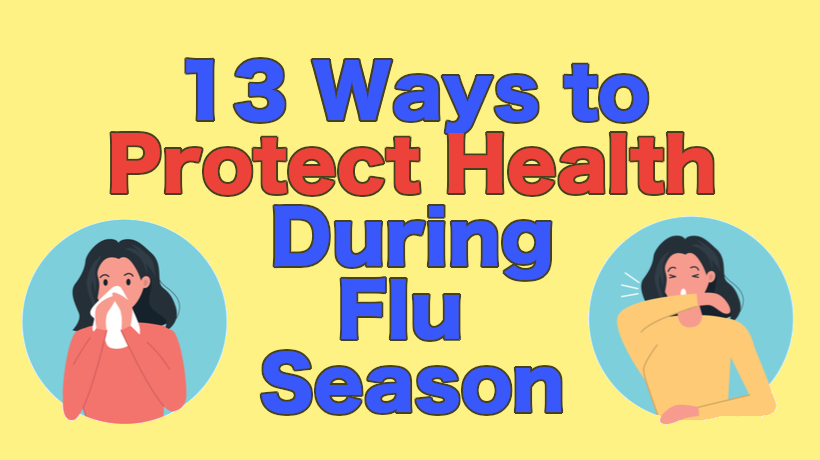The CDC states it is likely that the flu and the virus that causes COVID-19 will spread throughout the fall and winter of this year. However, there are ways to protect you and your family and help to reduce the risk of getting either infection.
Get Vaccinated
First and foremost, it is especially important to get vaccinated this year. See if your healthcare provider or workplace helps to cover the cost of flu vaccines. If they do not, you may be able to get vaccinated at your local CVS or Walgreens for a low price.
Avoid Close Contact
Avoid close contact with those who you know are sick. This may help to reduce the chances of you or your family getting sick. Remember to keep your distance (six feet or more preferably).
Stay home if you are sick
If you have contracted the seasonal flu, make sure that you stay home to ensure that you do not spread the virus to anyone else. If you have much to do on your list like I do, try and find other alternatives to achieving the task. If you have to get groceries, ask a relative, friend, or even Instacart. By taking care of yourself, you take care of others.
Cover your mouth and nose
When you sneeze or cough, make sure to cover your mouth and nose. A sneeze can linger in the air for more than an hour and may even travel 20-26 feet from the original startup point. CDC states, the flu, and other serious respiratory illnesses, like respiratory syncytial virus (RSV), whooping cough, and COVID-19, are spread by cough, sneezing, or unclean hands.
Clean your hands
You do not know where your hands have been. There are a lot of places that contain germs and bacteria that may be able to infect you or those around you. “Washing your hands often will help protect you from germs,” the CDC says. Make sure to wash and scrub your hands thoroughly, rubbing them for 20 seconds and getting into all the crevices.
Do not touch your mouth, nose, or eyes
Bacteria can live on your hands unbeknownst to you. By touching your mouth, nose, or eyes, you may spread the germs around your body, making it easier for you to fall ill.
Manage your stress
Stress can lower the immune system. According to the Cleaveland Clinic, “stress decreases the body’s lymphocytes — the white blood cells that help fight off infection. The lower your lymphocyte level, the more at risk you are for viruses, including the common cold and cold sores.”
Wipe down surfaces
Clean your area and make sure that they are free of germs. When you wipe down surfaces with anti-bacterial wipes, it may help to reduce the number of germs that lie on said surfaces. Surfaces may gather and spread germs if they are not kept clean.
Have Hand sanitizer on you
When you are out and not able to wash your hands, hand sanitizer is the next best thing. Just make sure that it is at least 60% alcohol. Anything lower is not effective in killing germs.
Wear a mask
Especially since we are in a pandemic, wearing a mask is quite helpful in avoiding germs ad viruses that you are not able to see. If you wear a mask and someone else sneezes, you have a lower chance of contracting what they have.
Be wary of doorknobs
Doorknobs hold a ton of germs because everyone is always touching them to get from one place to the next. When you encounter a doorknob, try using a paper towel or a part of your shirt instead of your bare hands. According to CBS News, one germy doorknob can infect your whole office within a few hours.
Avoid touching people
Hugging and hand holding are admirable and activities that may induce a feeling of warmth. Who doesn’t love to be hugged by their favorite person? It is best to avoid hugging, shaking, and/or holding hands to protect yourself from contracting the flu.
Generally, keep your body healthy
Get some restful sleep, be physically active, eat nutritious food, and stay hydrated. By keeping your body and immune system running in a healthy manner, they will be much more capable of fighting off infections.
Sources:



